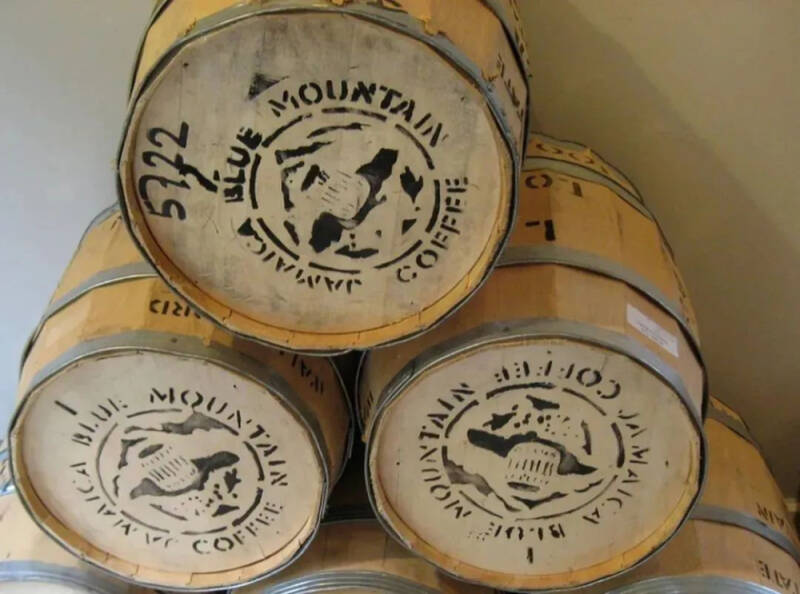Indonesia plans to ban the export of raw coffee beans!
According to Indonesian media reports, during the Indonesian BNI investors' Daily Summit (BNI Investor Daily Summit) held at the Jakarta Convention Centre from 8 to 9 October 2024, President Joko Widodo proposed that the country was considering banning the export of unprocessed agricultural products such as coffee and cocoa.
It is reported that during the summit, the current Indonesian President Joko Widodo pointed out that the global economy is facing challenges such as climate change, economic slowdown and geopolitical tensions, but Indonesia is still doing well. Indonesia's economy grew by 5.08% in the second quarter of 2024. Moreover, the president predicts that Indonesia's per capita GDP will exceed US $7000 in the next five years and even reach US $9000 within 10 years. Therefore, in order to achieve this at present, President Joko has put forward two key strategies: downstream and digitization of resources.
It is understood that through the downstream policy in January 2020, Indonesia formally implemented the export ban on the nickel industry, which can only be exported after local smelting or refining. It is hoped to attract investors to directly invest in the construction of factories in Indonesia to process nickel ore, although it has been opposed by the European Union and many countries, but after implementation, the processing capacity of these mineral resources has been greatly improved. Exports have soared from $14 billion to $2 billion before the ban to $34.8 billion today.
President Joko believes that the downstream policy also applies to other industries. As a result, the Government of Indonesia is currently developing plans to localize other industries similar to nickel processing, including unprocessed coffee beans, cocoa, pepper and patchouli, and to extend downstream to the agricultural, marine and food sectors.
The President Joko also stated that labour-intensive domestic processing industries needed to be encouraged and resource nationalism extended to the agricultural, marine and food sectors in order to add value to coffee and that if these plantations could be developed, revitalized and expanded, every effort must be made to stop the export of unprocessed goods.
It is reported that there is a precedent for banning the export of unprocessed coffee, and it is the famous Jamaican Blue Mountain coffee. In 2009, Jamaica Blue Mountain Coffee was already very famous, when there were many fake "Blue Mountain flavor coffee" in the international coffee market. In order to ensure the purity and high quality of Blue Mountain coffee, Jamaica introduced the National Export Strategy (NES) policy at that time, and the Jamaican government strongly advocated the roasting of Blue Mountain coffee in its country of origin. Moreover, at that time, the price of roasted coffee beans was US $39.7kg, while that of raw coffee beans was US $32.20 per kilogram, and the price of roasted coffee beans was even higher, which could increase the contribution of exports to GDP.
However, with the development of trade liberalization in recent years and the requirements of the international coffee market for freshly roasted boutique coffee, Jamaica has gradually relaxed the control of commodity import and export licenses and quotas, and now allows the export of raw coffee beans.

At present, Indonesia is the fourth largest coffee exporter, with an area of 1.2 million hectares of coffee plantations and 1.4 million hectares of cocoa production, according to Indonesian government statistics. The market estimates that the total output of coffee in Indonesia will reach 11.5 million bags, but Indonesia consumes a lot of coffee in the country, with about 6.7 million bags available for export.
Although the export policy of unprocessed coffee is still in the formulation stage, once the policy is implemented and implemented, it will lead to a reduction in supply in the global coffee market, which in turn will lead to a rise in prices. Indonesia is the fourth largest coffee producer in the world, and its ban on coffee exports will directly affect the supply of coffee in the global coffee market. In addition, Brazil, Vietnam and other coffee-producing countries have reported reduced production, coffee prices remain high, if Indonesia coffee export ban will lead to a substantial increase in coffee prices.
In the recent Indonesian coffee season, Indonesia 2024 Coffee 25 is expected to produce 10.9 million bags of coffee beans, of which about 4.8 million bags are consumed domestically, and more than half of the beans will be exported. If Indonesia promotes the deep processing of coffee beans, although it can keep the added value of deep processing in its country. However, on the one hand, the overseas market accounts for a large proportion of raw coffee beans, and on the other hand, the coffee bean market is increasingly inclined to be sold after fresh roasting in consumer countries, which will make the enforceability of the policy very questionable. Further information is needed on the progress of this policy move in Indonesia.
For more information about coffee producing areas, please scan the code directly and follow: coffee comments.
Long press the QR code to follow:

TRANSLATE with
XEnglishArabicHebrewPolishBulgarianHindiPortugueseCatalanHmong DawRomanianChinese SimplifiedHungarianRussianChinese TraditionalIndonesianSlovakCzechItalianSlovenianDanishJapaneseSpanishDutchKlingonSwedishEnglishKoreanThaiEstonianLatvianTurkishFinnishLithuanianUkrainianFrenchMalayUrduGermanMalteseVietnameseGreekNorwegianWelshHaitian CreolePersian
TRANSLATE with
COPY THE URL BELOW
BackEMBED THE SNIPPET BELOW IN YOUR SITE Bing Webmaster PortalBack
Important Notice :
前街咖啡 FrontStreet Coffee has moved to new addredd:
FrontStreet Coffee Address: 315,Donghua East Road,GuangZhou
Tel:020 38364473
- Prev

Why is Kenyan coffee so sour? What is Kenya's K27 Treatment?
When it comes to coffee beans represented by acid, many people will think of African coffee. Among them, coffee from Ethiopia and Kenya are representatives of African coffee. However, the coffee from these two countries also has obvious differences in the performance of acid. Ethiopia's acid is refreshing and bright, while Kenya is thicker and stronger.
- Next

Can I use milk to make coffee by hand? How much milk does it take to make a latte? How to add milk to hand-brewed coffee? What is the ratio?
Hand-brewed coffee is a method of coffee extraction that belongs to drip filtration. The so-called drip filter type means that while water is injected and extracted, the coffee seeps out. Because hand-brewed coffee utensils are affordable and easy to make, it has become a regular coffee utensils at home for many friends. But inevitably, if you drink too much black coffee, you will always want to change
Related
- What grade does Jamaica Blue Mountain No. 1 coffee belong to and how to drink it better? What is the highest grade of Blue Mountain coffee for coffee aristocrats?
- What are the flavor characteristics of the world-famous coffee Blue Mountain No. 1 Golden Mantelin? What are the characteristics of deep-roasted bitter coffee?
- Can I make coffee a second time in an Italian hand-brewed mocha pot? Why can't coffee be brewed several times like tea leaves?
- Hand-brewed coffee flows with a knife and a tornado. How to brew it? What is the proportion of grinding water and water temperature divided into?
- What is the difference between Indonesian Sumatra Mantinin coffee and gold Mantinin? How to distinguish between real and fake golden Mantelin coffee?
- What does bypass mean in coffee? Why can hand-brewed coffee and water make it better?
- Unexpected! Ruixing Telunsu lattes use a smoothie machine to foam milk?!
- % Arabia's first store in Henan opens into the village?! Netizen: Thought it was P's
- Does an authentic standard mocha coffee recipe use chocolate sauce or powder? Mocha Latte/Dirty Coffee/Salty Mocha Coffee Recipe Share!
- What is the difference between Vietnam egg coffee and Norway egg coffee? Hand-brewed single product coffee filter paper filter cloth filter flat solution!

